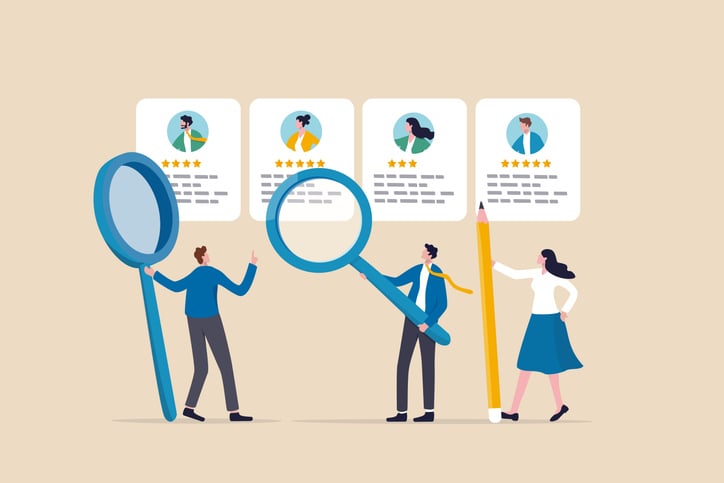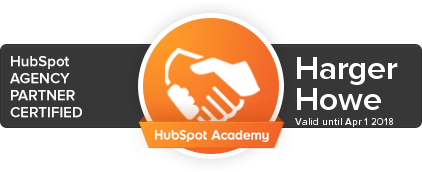Chances are good that you've heard ChatGPT mentioned at least once in the last few months. The generative artificial intelligence (AI) tool has had a profound impact across nearly all industries and sectors as speculation swirls about its possible implications for the future.
HR is no exception: according to a Human Resources Executive article, many of the conversations at the HR Technology Conference held in Las Vegas this fall centered almost exclusively on the possible applications for ChatGPT and AI tools in the Human Resources field. Crucially, speakers such as Johannes Sundlo, the senior HR manager at Avalanche Studios Group, urged HR professionals to begin building ChatGPT skills now to adequately prepare for the future, referencing a quote from researcher Roy Amara: “We tend to overestimate the effect of a technology in the short run and underestimate the effect in the long run.”
What's more, the emerging data seems to support the revolutionary effect ChatGPT and similar tools can have when employed in HR. A staggering 80% of Fortune 500 companies have already embraced ChatGPT, leveraging the tool for tasks such as crafting compelling job postings, facilitating seamless communication with candidates, and effectively matching skills. According to estimates by the Boston Consulting Group, businesses that implement ChatGPT for HR tasks can experience a remarkable 30% boost in efficiency. Whether or not these figures prove ambitious, even a 10% improvement in efficiency translates to a half-day per week of reclaimed time for HR professionals.
It is high time for forward-looking HR professionals to begin familiarizing themselves with ChatGPT and exploring its potential applications in their day-to-day work. Here are seven tips to help you get started:
1. Familiarize Yourself with ChatGPT and Other AI Chatbots:
Get acquainted with ChatGPT and other AI chatbots in the market. Research and explore the various options available to find the best fit for your HR needs. Understanding the capabilities and limitations of these AI-powered assistants will help you make informed decisions and make the most of their features.
2. Identify Your HR Pain Points:
Take a deep dive into your HR processes. Identify areas that could benefit from automation or assistance from AI chatbots. For example, do you spend a significant amount of time answering frequently asked questions, managing employee onboarding, or handling leave requests? By pinpointing these pain points, you can better leverage the power of AI chatbots to streamline your workflow.
3. Start Small and Set Clear Objectives:
When venturing into the world of AI chatbots, it's important to start small and set achievable goals. Begin with a specific use case, such as automating leave request approvals or providing quick answers to common HR inquiries. By starting small, you can learn and adapt without overwhelming yourself or your team.
4. Engage in Continuous Learning:
Just like any other skill, becoming proficient with AI chatbots requires ongoing learning. Stay updated with the latest advancements in the field and explore new features and functionalities. Participate in webinars, online courses, or workshops to gain deeper insights into the potential applications of AI chatbots in HR. This will empower you to make the most of these tools and maximize their impact.
5. Experiment and Iterate:
Don't be afraid to experiment with AI chatbots. Test different conversational flows, responses, and engagement strategies to find what works best for your organization and employees. Solicit feedback from your colleagues to understand their experiences and make necessary improvements. Remember, iteration is key to optimizing your AI chatbot's performance.
6. Balance Automation with Human Touch:
While AI chatbots can automate certain HR tasks, it's crucial to strike a balance between automation and human touch. Some interactions may require a personalized touch and empathy that only a human can provide. Identify where human intervention is essential and ensure that your AI chatbots seamlessly integrate with your HR team's efforts.
7. Stay Mindful of Ethical Considerations:
As HR professionals, it's important to be mindful of the ethical implications surrounding AI chatbots. Ensure that your chatbots adhere to privacy regulations and maintain data security. Transparently communicate to employees that they are interacting with an AI chatbot to avoid any confusion or concerns. Regularly review and update your AI chatbot's responses to ensure they align with your organization's values and policies.
Final Thoughts:
Embracing AI chatbots, such as ChatGPT, can be a game-changer for HR professionals. By building your skills in this area, you can enhance your ability to provide efficient and personalized employee support. Remember to take it one step at a time, identify pain points, experiment, and find the right balance between automation and human touch. With continuous learning and a mindful approach, you'll be well on your way to leveraging AI chatbots to empower your HR department and building the crucial skills you'll need to remain effective in your role for years to come.
If you'd like to discuss how to best integrate tools like ChatGPT into your recruitment marketing strategy, a Harger Howe Account Manager would be happy to speak with you. To learn more about Harger Howe Advertising and the services we provide, please contact our President Mike Walsh at mwalsh@hargerhowe.com.









